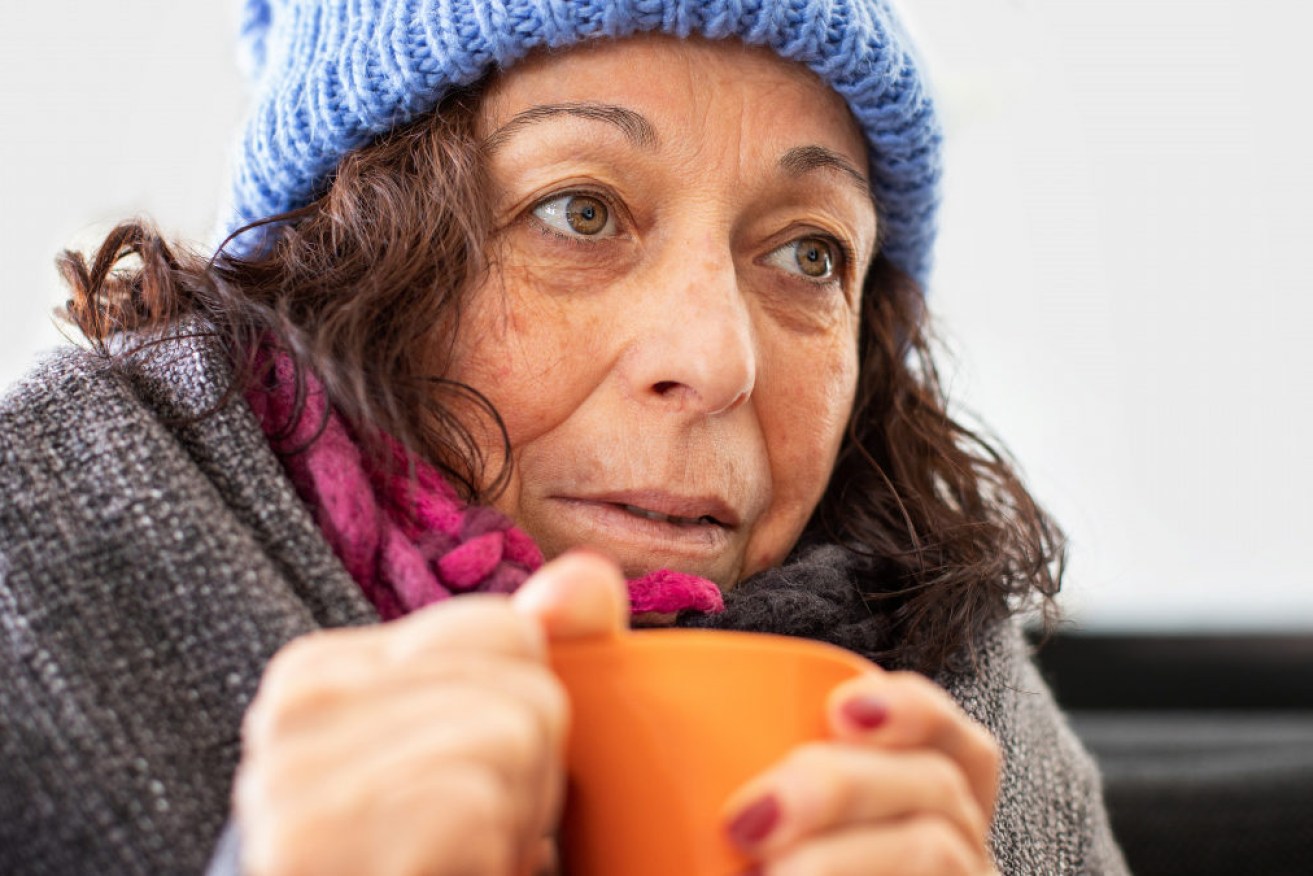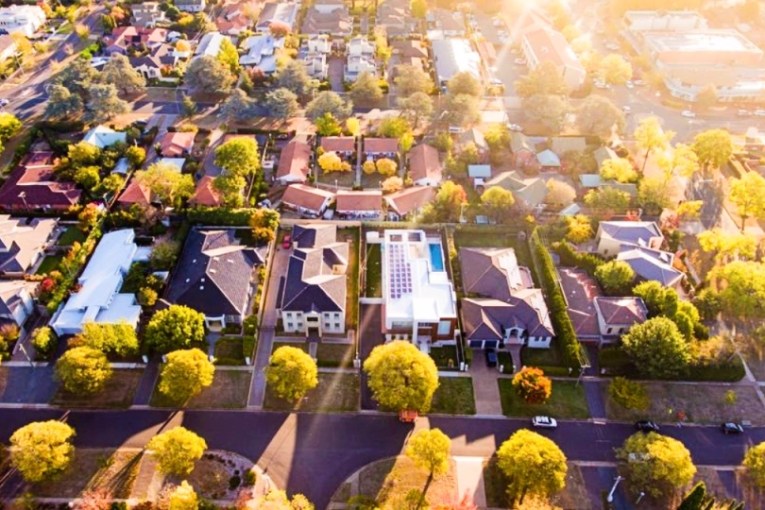Older women are the new face of homelessness in Australia, and the government is failing them

Women over 55 are the fastest growing cohort of people facing homelessness in Australia. Photo: Getty
Terrifying and humiliating.
That is how Vanessa described her experience of becoming homeless for the first time in her 50s.
In a matter of weeks, she went from not even knowing what homeless services were available to them determining her life.
This isn’t the first time we have heard this story. In Vanessa’s case – she returned home after a few years overseas, caring for unwell family members, to find herself in a situation she never expected to be in. Vanessa couldn’t find employment due to her age and she couldn’t get a lease for a home on the Newstart Allowance.
So, with local services unable to help due to lack of funds, she quickly had no other choice but to sleep rough.

A dry spot and a warm sleeping bag is what lies ahead for many women. Photo: Getty
I was introduced to Vanessa’s story through HAAG (Housing for the Aged Advocacy Group), and unfortunately, her story is confronting but not a rarity.
Women over 55 are the fastest growing cohort of people facing homelessness in Australia.
And sadly, the coronavirus is making the situation much worse.
In May, the Workplace Gender Equality Agency (WGEA) released a report on the Gendered Impact of COVID19, with a plan to mitigate the inevitable economic blow that women will face.
The problem is, not only has the government not taken up any of these recommendations, they aren’t even talking about the problem.
Do you know how many times Scott Morrison has addressed this issue? Zero. Never. Not a word.
Not only is there no plan, but there isn’t even a conversation.
Far too often issues such as these are assigned to women’s organisations or agencies to discuss and to generate plans that never come to fruition.
This is not a women’s issue; this is an Australian issue. One that we should be speaking up about, regardless of our gender.
At an increasingly alarming rate, Australian women are finding themselves the product of structural inequality in the economy.
Unequal pay, the accumulation of assets and superannuation gaps are systemically leaving Australian women more financially disadvantaged.
Making matters worse, this is compounded by situations of family violence, where women are forced to choose between homelessness and returning to an unsafe place that no one should have to call home.
There are cultural and policy changes we must make to turn this shameful situation around.
And while the coronavirus is amplifying many of the problems, it also presents us an opportunity to do better and create change.
Twelve months ago, women over 55 were the single largest demographic group accessing welfare payments – over 100,000 women over 55 were on the then-Newstart payment and/or the Sickness Allowance.
And while the coronavirus crisis has seen a large increase in all demographics, the number of women over 55 on the now ‘JobSeeker’ rate has risen by over 60 per cent in the last year.
On average, women retire with just over half the superannuation savings than men do. But worse, one in three women retire with no super at all.

What happens when the eviction moratorium ends? Women will suffer most. Photo: Getty
And this government’s early access super scheme will only exacerbate that problem, further depleting retirement savings.
I believed in the superannuation policy that we took to the last election because it was going to assist women retiring with more superannuation.
It is also a grim fact that in many of the female-dominated industries the wages and conditions are woefully inadequate.
Again, Labor’s policy at the 2018 election to ensure childcare workers were paid more was an example of how the Government can and should make a difference.
This pandemic has demonstrated what we already knew: female-dominated industries are essential to our society, and should be rewarded as such with better pay, conditions, and ultimately, respect.
Our homes have never been more important. They are our best defence against this virus, which is particularly dangerous for older generations.
A Productivity Commission report last year found that more than half of vulnerable renters in the private market were experiencing significant rental stress.
Now due to the coronavirus, with millions more Australians deriving their income from temporary government payments that are set to be reduced and temporary policies to defer rents and evictions, the floodgates preventing mass evictions and homelessness may be about to break.
Deferred rents will still have to be paid, as will other bills and debts that may have been deferred on compassionate grounds; and the eviction moratorium will not last forever.
A lot of Australians will find themselves at the end of this crisis with more debt than they can manage.
Three months ago, in April, I wrote a policy piece for the Chifley Research Centre, calling on the government to make housing investment a priority to both stimulate the economy and to address this growing housing crisis.

All too often the sexist assumption is that women will care for the elderly.
In June, the government finally announced a housing policy – but it was not designed to help those who desperately need secure housing. It was designed to subsidise people to make expensive renovations – if you can afford a $150,000 reno, the government will give you a $25,000 cash grant.
HomeBuilder, as they called it, still cannot be applied for by the majority of Australians.
Regardless, it is not going to help the growing cohort of homeless Australian women.
A real housing plan that will stimulate our housing and construction sector must invest in a range of social and affordable housing.
A real housing plan would be one that provides better pathways from temporary and crisis accommodation to permanent housing solutions for Australians – especially women.
While our economy shrinks, our attention must turn to how we will rebuild with a focus on economic equity and opportunity for women.
For too long, Australian women have held an unfair amount of responsibility that has only led to disproportionate hardship.
We can and must change this.
While addressing the economic inequities that face Australian women in 2020, we must also build more homes for the fastest growing group of homeless Australians – women over 55.
We need to listen to Vanessa. We need to combat the causes of homelessness and we need to ensure Australians, especially women over 55, have a safe place to live.
Labor MP Josh Burns is the Federal Member for Macnamara
Homelessness Week 2020 runs from August 2-8. This year’s theme is ‘Everybody Needs a Home’








